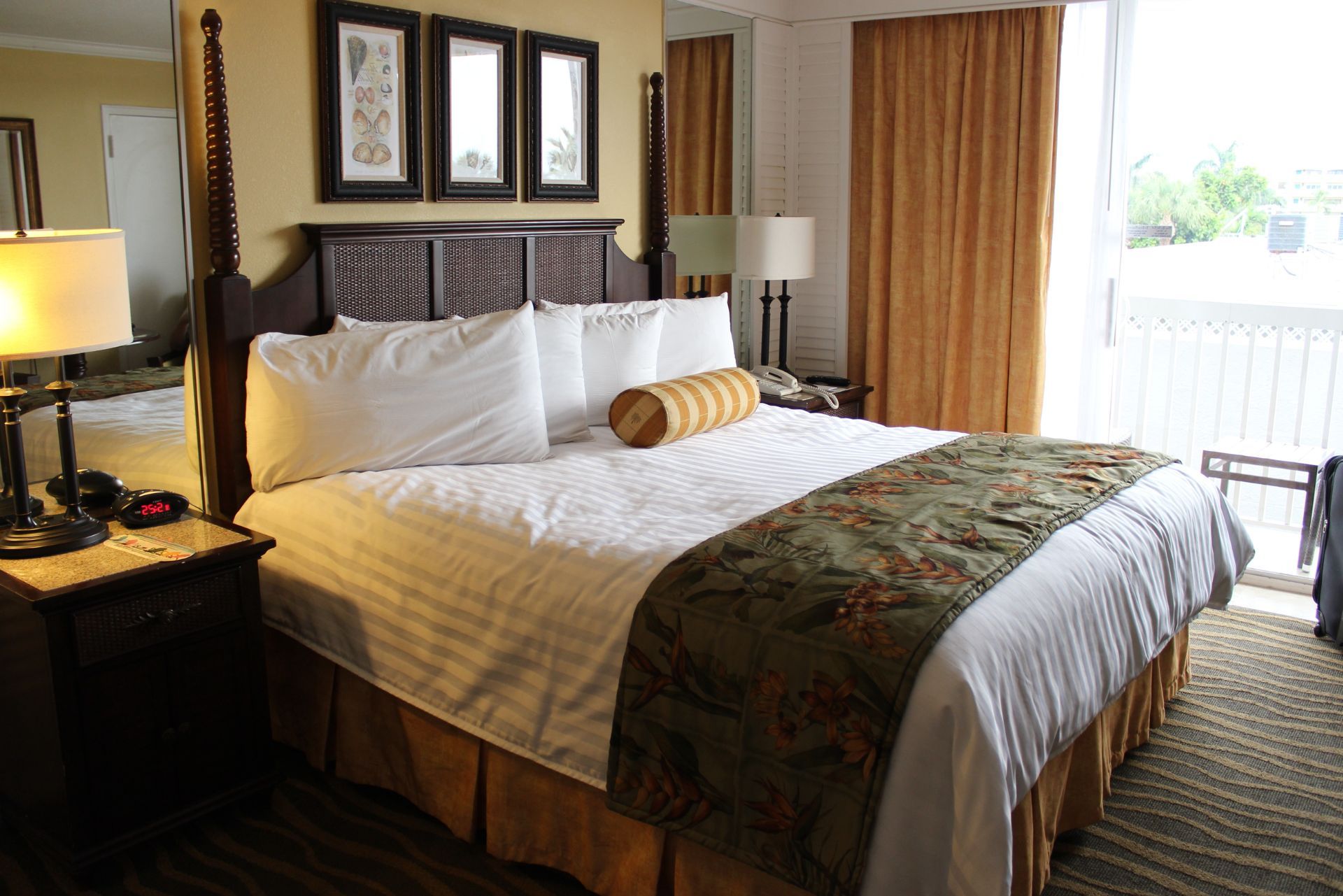Top 3 Recommended Policies

By: Lance Hale
Licensed Commercial Insurance Specialist
425-320-4280
Washington’s hotel industry has always balanced two compelling forces: the irresistible lure of evergreen scenery that draws travelers from around the world, and a complex, fast-changing risk profile that keeps owners, managers, and investors up at night. From independent inns in Walla Walla wine country to high-rise convention properties in Seattle, all hospitality businesses in the state share one pressing need—comprehensive, tailored insurance. The following guide explains how hotel insurance works in Washington, why specialized coverage matters, and what decision-makers can do to protect revenue, reputation, staff, and guests.
The Hospitality Landscape in Washington State
Tourism contributed approximately $21.4 billion to Washington’s economy in the most recent full fiscal year, according to the State Department of Commerce. Hotels captured nearly 45 percent of that spend, fueling more than 175,000 direct and indirect jobs across all counties. Yet growth has not been uniform. Urban centers such as Seattle, Spokane, and Tacoma report occupancy rates above 70 percent, while rural resorts can fluctuate dramatically with seasonal wildfire risk and transportation challenges.
Those numbers matter because insurers analyze them when pricing policies. High occupancy raises both revenue potential and liability exposure; fire-prone regions may demand higher property limits; and coastal hotels face additional catastrophe modeling for windstorm and flooding. Understanding these regional nuances helps owners negotiate coverage that mirrors local realities, not generic national averages.
In addition to the economic impact, the hospitality sector in Washington State is also a key player in promoting local culture and heritage. Many hotels and resorts partner with local artisans and farmers to provide guests with authentic experiences that showcase the region’s unique offerings. From farm-to-table dining experiences featuring fresh produce from the Skagit Valley to art installations that highlight the work of Pacific Northwest artists, the hospitality industry plays a crucial role in preserving and promoting the local identity. This not only enriches the visitor experience but also fosters a sense of community pride and sustainability.
Moreover, the rise of eco-tourism in Washington has led to an increase in the number of hotels adopting sustainable practices. Many establishments are now implementing green initiatives, such as energy-efficient systems, water conservation measures, and waste reduction programs. This shift not only appeals to environmentally conscious travelers but also positions Washington as a leader in sustainable tourism. As guests become more aware of their environmental footprint, hotels that prioritize sustainability are likely to see a competitive advantage, further influencing the dynamics of the hospitality landscape in the state.
Why Hotels in Washington Need Specialized Insurance
Standard commercial property and liability packages rarely capture the layered risks unique to hotels. Beyond physical buildings and contents, hospitality operations navigate guest injuries, food-borne illness, alcohol service liability, data compromise, and employment-related claims. Washington’s blend of strict labor laws, progressive data-privacy statutes, and liquor regulations intensifies those exposures.
Claims data underline the point. Industry research from the Insurance Information Institute shows slip-and-fall incidents generate 38 percent of bodily-injury losses for hotels nationally, while cyber events now rank among the top five most expensive claim types. In Washington, where average jury awards for personal injury have climbed steadily over the last decade, a single uncovered lawsuit can erase years of profit.
Carving out a tailored policy mitigates that threat. Specialized hotel programs bundle property, liability, and niche protections into one coordinated portfolio, reducing gaps and duplication. The result is smoother claims handling, predictable premiums, and fewer unpleasant surprises when the unexpected occurs.
Furthermore, the unique nature of hotel operations means that the risk landscape is constantly evolving. For instance, the rise of online booking platforms and the sharing economy has introduced new competitive pressures and operational challenges. Hotels must now contend with the implications of third-party bookings, which can complicate liability issues if a guest faces an incident while staying at the property. This necessitates a comprehensive understanding of the insurance landscape to ensure that all aspects of the business are adequately covered, especially as customer expectations shift towards more personalized and tech-driven experiences.
Additionally, Washington's vibrant tourism sector, bolstered by attractions such as national parks, cultural landmarks, and a thriving culinary scene, means that hotels are often at the forefront of managing large events and gatherings. This can lead to increased exposure to risks associated with crowd control, event liability, and potential property damage. As hotels adapt to these dynamic environments, specialized insurance becomes not just a safety net, but a strategic asset that enables them to thrive in a competitive marketplace while safeguarding their financial stability against unforeseen challenges.
Core Coverages Every Washington Hotel Should Consider
Though each property is distinctive, the following core protections form the backbone of most Washington hotel insurance programs.
Commercial Property Insurance
This coverage pays to repair or replace buildings, guest rooms, furnishings, and equipment after fire, windstorm, vandalism, or other covered perils. Given Washington’s seismic zones, owners frequently add earthquake endorsements or stand-alone quake policies to avoid exclusionary language found in many base forms. Additionally, hotels should consider coverage for business personal property, which protects items like linens, kitchen equipment, and other contents that are essential for daily operations. This can be particularly important for hotels that invest heavily in their ambiance and guest experience, as the loss of these items can significantly impact both revenue and reputation.
General Liability Insurance
General liability addresses third-party bodily injury and property damage—think a guest slipping on a wet lobby floor or luggage damaged by housekeeping. Limits often start at $1 million per occurrence, but hotels hosting conventions or large events usually buy higher limits or bolster protection with an umbrella policy. Furthermore, it’s essential for hotel operators to maintain a rigorous safety protocol to minimize incidents, as this not only protects guests but also helps in keeping insurance premiums manageable. Regular training for staff on safety procedures and maintaining a clean, hazard-free environment can contribute significantly to reducing liability claims.
Business Interruption (Time Element) Coverage
Also called business income insurance, this pays for lost revenue and ongoing expenses when an insured peril forces partial or total shutdown. For hotels, the policy should include extra expense and contingent business interruption to account for supply chain disruptions—vital when regional wildfires delay laundry services or food deliveries. In addition, hotels should evaluate their risk exposure to natural disasters and consider tailored coverage options that reflect their specific geographical vulnerabilities. This proactive approach can help ensure that they are adequately protected against unforeseen events that could disrupt their operations.
Workers’ Compensation
Washington operates a state-funded workers’ compensation system, but qualified self-insurance or retrospectively rated plans are available to larger hotel chains. Coverage pays medical bills and lost wages for staff injured on the job, from kitchen burns to maintenance accidents. Moreover, implementing a comprehensive employee safety program can not only reduce the frequency of workplace injuries but also foster a culture of safety that enhances employee morale and retention. Regular training sessions and safety audits can identify potential hazards before they lead to incidents, ultimately benefiting both the employees and the hotel’s bottom line.
Cyber Liability Insurance
Hotels collect credit-card data, passport scans, and loyalty profiles—prime targets for cybercriminals. A Washington hotel that suffers a breach must comply with the state’s 45-day notification requirement and can face steep penalties. Cyber policies fund forensic investigations, legal defense, notification costs, and business interruption stemming from network outages. As technology continues to evolve, hotels should also invest in cybersecurity training for staff to recognize phishing attempts and other cyber threats. This proactive stance can significantly bolster their defenses against potential breaches and enhance their overall security posture.
Liquor Liability Insurance
Washington’s dram-shop laws can hold establishments liable if they overserve a visibly intoxicated guest who subsequently causes harm. Liquor liability fills that gap, covering defense costs and damages. Premiums hinge on alcohol sales ratios, staff training protocols, and incident history. To mitigate risks, hotels should implement responsible service training for bartenders and waitstaff, ensuring they are well-versed in identifying signs of intoxication and handling difficult situations appropriately. This not only protects the hotel from potential liability but also promotes a safe and enjoyable environment for all guests.
Employment Practices Liability Insurance (EPLI)
With Washington’s salary transparency rules and robust anti-discrimination statutes, hotel employers face rising claims of wrongful termination, harassment, and wage-and-hour violations. EPLI covers legal fees, settlements, and judgments, offering a crucial line of defense during labor disputes. Additionally, hotels should foster an inclusive workplace culture that prioritizes employee well-being and open communication. Regular training on diversity, equity, and inclusion can help mitigate risks associated with EPLI claims and create a more harmonious work environment.
Commercial Umbrella Insurance
An umbrella policy sits above primary liability lines, providing additional limits—often in $5 million or $10 million increments—to guard against catastrophic verdicts. For hotels that host major conferences or have celebrity guests, umbrellas protect both assets and brand reputation. Furthermore, hotels should conduct regular risk assessments to identify potential gaps in their coverage and ensure that their umbrella policy aligns with their overall risk management strategy. This comprehensive approach not only safeguards the hotel’s financial stability but also enhances its credibility in the eyes of guests and stakeholders alike.

Add-On Policies That Can Make the Difference
Core coverages form a solid foundation, but several optional policies can transform a good insurance program into a top-tier risk-management solution.
Equipment Breakdown Insurance
From HVAC chillers to industrial laundry presses, hotel machinery works around the clock. Equipment breakdown insurance pays for sudden mechanical or electrical failure, including spoilage of refrigerated food and lost revenue when systems go offline during peak occupancy.
Guest Relocation Coverage
If a covered peril renders rooms uninhabitable, Washington’s consumer-protection guidelines require hotels to relocate guests or refund the stay. Guest relocation endorsements reimburse those unexpected costs, whether sending patrons to a competitor property or arranging transportation.
Crime and Fidelity Insurance
Internal theft, credit-card skimming, and cash-drawer shortages remain perennial challenges in hospitality. Crime coverage addresses employee dishonesty as well as external theft and robbery, safeguarding both physical and digital assets.
Regulatory Environment and State-Specific Requirements
Washington’s Office of the Insurance Commissioner regulates policy forms and consumer protections, but hoteliers must also navigate building codes, fire-suppression standards, and environmental rules. For instance, properties older than 1978 may need lead-based paint disclosures, which in turn affect liability underwriting.
King County and Seattle maintain additional ordinances around food safety scoring, unionized labor standards, and short-term rental limits. These local laws can trigger unique insurance endorsements or exclusions—especially in EPLI and general liability lines—so policy reviews should always factor in municipal requirements.
Cost Factors and Premium Benchmarks Across Washington
Average package premiums for mid-sized hotels (100–150 rooms) range from $550 to $900 per room annually in metropolitan areas, according to a 2023 market survey by a national brokerage. Rural properties typically land 15 percent lower, but wildfire exposure in Central Washington can erase that discount. The largest cost drivers include:
• Construction type (wood-frame vs. fire-resistive)
• Claims history and loss ratio
• Distance to a protected fire station and sprinkler coverage
• Ratio of food-and-beverage revenue to room revenue
• Data-security controls and PCI compliance status
Bundling multiple hotels into a single program or joining a group captive can shave 7-to-12 percent off aggregate premiums, particularly for owners who invest heavily in loss-control measures.

Risk Management Strategies to Lower Claims
Insurance is only half of the equation; proactive loss prevention keeps premiums stable over the long haul. Washington hotels have found measurable success with these strategies:
• Slip-resistant flooring and real-time moisture sensors in high-traffic areas
• Quarterly fire-drill simulations that include front-of-house and back-of-house staff
• Card-key systems integrated with cybersecurity monitoring, reducing both physical theft and data breaches
• Mandatory alcohol-service certification through the Washington State Liquor and Cannabis Board for all bartenders and servers
A recent Puget Sound study showed properties that implemented combined safety and cyber protocols saw a 22 percent drop in claim frequency over three years, illustrating the financial impact of disciplined risk management.
Selecting the Right Insurance Partner
Not all carriers write hospitality business in every county, so market access matters. Look for insurers with in-house loss-control engineers, 24/7 claims hotlines, and dedicated hotel, resort, or franchise programs. Independent agents often compile side-by-side comparisons showing coverage differences beyond price, giving owners a clearer view of exclusions, sub-limits, and endorsements.
References from fellow hoteliers, combined with carrier financial ratings (A.M. Best A- or higher), create a shortlist of reliable partners that balance competitive rates with long-term stability.
Filing a Claim: Best Practices for Washington Hoteliers
Time is of the essence. Washington’s insurance code requires prompt notice, and many policies stipulate written claim reports within 72 hours of discovery. Photograph damage, secure witness statements, and preserve video footage before clean-up crews arrive. Lodging a preliminary claim does not lock an owner into final numbers; supplemental submissions are allowed as expenses become clear.
For liability incidents, separate the guest experience from the evidentiary process. Offer immediate medical assistance and empathetic communication but avoid admitting fault. Forward any attorney letters straight to the carrier. Failure to do so can jeopardize defense coverage.
Case Studies: Lessons from the Evergreen State
Real-world claims highlight how coverage and preparedness intersect.
Coastal Storm Cuts Power in Grays Harbor
A 92-room beachfront hotel lost grid electricity for four days after a windstorm toppled transmission lines. Backup generators powered essential lighting but not the HVAC system, leading to canceled reservations and $160,000 in lost revenue. Business interruption coverage kicked in after a 24-hour waiting period, reimbursing lost income and covering the cost of relocating wedding guests to a sister property inland.
Data Breach in Downtown Seattle
When malware infiltrated a point-of-sale system, hackers accessed 18,000 payment cards before detection. Washington’s data-breach notification law forced the hotel to alert guests quickly and provide credit-monitoring services. Total breach expenses exceeded $600,000, but a cyber liability policy covered forensic analysis, legal defense, regulatory fines, and two years of identity-theft protection for affected customers.
Frequently Asked Questions
How much hotel insurance is legally required in Washington?
The only mandatory line statewide is workers’ compensation, administered through the Department of Labor & Industries. All other coverages are contractually or lender-driven, yet lenders almost always demand property and general liability limits sufficient to protect loan collateral and operational continuity.
Does property insurance in Washington automatically include earthquake coverage?
No. Earthquake is typically excluded or sub-limited in standard property forms. Because the Cascadia Subduction Zone poses a significant seismic threat, hotels should purchase either an earthquake endorsement or a separate stand-alone earthquake policy.
Can a hotel reduce liquor liability premiums?
Yes. Proven tactics include implementing age-verification technology, creating written service policies, and sending employees to Washington State Liquor and Cannabis Board training modules. Clean loss history over five years can yield double-digit premium reductions at renewal.
What is the typical deductible for business interruption insurance?
Rather than a monetary deductible, most policies apply a waiting period—commonly 24 or 48 hours—before coverage activates. Selecting a longer waiting period can lower premiums but increases out-of-pocket exposure during short interruptions.
Key Takeaways for Hotel Owners and Managers
Washington’s diverse geography, evolving regulations, and competitive labor market create a unique risk matrix for hoteliers. A coordinated insurance portfolio—anchored by property, liability, and cyber coverage—shields balance sheets from major shocks while supporting day-to-day resilience.
Strategic partnerships with knowledgeable brokers, proactive loss-control investments, and diligent claims procedures complete the picture, ensuring that every guest check-in is backed by robust protection behind the scenes.

